California Serogroup Serology and PCR
Consistent with O. Reg. 671/92 of the French Language Services Act, laboratory testing information on this page is only available in English because it is scientific or technical in nature and is for use only by qualified health care providers and not by members of the public.
Testing Indications
California serogroup (CSG) viruses are mosquito-borne pathogens that may cause encephalitis in humans. CSG viruses circulate across Canada and the United States. Clinical cases as well as seroprevalence rates of 20-30% have been documented from coast to coast including northern regions of the country such as the Yukon and North West Territories. It is recommended that CSG viruses, and other arboviruses present in Ontario (e.g., West Nile, Powassan, Eastern equine encephalitis viruses) be part of the differential for neurological case investigations that occur during the active mosquito season. The National Microbiology Laboratory (NML) currently tests for the two most prevalent CSG viruses in Ontario and Canada, Jamestown Canyon and Snowshoe Hare viruses.1
Note: La Crosse virus, the most commonly documented CSG virus in the United States, is not present in Canada.
Specimen Requirements
| Test Requested | Required Requisition(s) | Specimen Type | Minimum Volume | Collection Kit |
California Group Serology |
Paired serum specimens (acute AND convalescent) collected 2-3 weeks apart from patients with clinical illness2 |
Minimum volume of 1 mL for serological testing. |
Red top or serum separator tubes |
|
California Group Serology |
Cerebrospinal fluid (CSF) paired with single serum from patients with clinical illness2 |
Minimum volume of 500 µL for serological testing. |
Sterile tube/container and Red top or serum separator tubes |
|
California Group Serology |
Serum or CSF |
Additional volume of 250 µL is required for molecular detection |
Red top or serum separator tubes (serum) Or Sterile tube/container (CSF) |
Submission and Collection Notes
Effective October 3, 2022, the Arbovirus (Non-Zika) Testing Intake Form is a mandatory requirement for California encephalitis virus testing. PHO’s laboratory utilizes the information on the requisition and the mandatory intake form to assess testing criteria, assign appropriate tests, and provide mandatory information required by the National Microbiology Laboratory for relevant testing performed there.
Clinical information, including any risk factors such as mosquito exposure, and any recent travel, must be provided on the requisition before testing will be performed. Specimens not meeting NML’s acceptance criteria will be rejected for testing. Under special circumstances, testing will be considered on a case-by-case basis.
NML will not accept unpaired specimens. See Timing of specimen collection for details on paired specimen requirements.
Contact the PHO Customer service at 416-235-6556 or 1-877-604-4567 for further information.
Timing of Specimen Collection
The following paired specimens are accepted for CSG serology:
- Paired serum specimens (acute and convalescent) collected 2-3 weeks apart from patients with clinical illness
- CSF paired with single serum from patients with clinical illness.
Limitations
Persistent IgM and the high seroprevalence associated with CSG viruses in the Canadian population makes it difficult to differentiate recent from past infections from a single serum specimen, thus the need for paired sera and/or CSF.
PCR is not recommended for CSG viruses as it is not a sensitive test for CSG viruses, unless collected within 5 days of neurological onset during active mosquito season. NML will determine if molecular testing is feasible after serological testing is complete.
Storage and Transport
Specimens should be stored at 2-8°C or frozen following collection. Ship refrigerated specimens on ice packs and frozen specimens on dry ice.
Special Instructions
All specimens submitted for testing must be accompanied by a separate General Test Requisition for each specimen type collected. All fields on each requisition must be completed.
It is also MANDATORY to provide all information requested on the Arbovirus (Non-Zika) Information Intake Form. The Arbovirus (Non-Zika) Information Intake Form may be exempted if all mandatory information is available on the PHO’s General Test Requisition. Specimens submitted with missing mandatory information will not be tested until that information is provided.
Test Frequency and Turnaround Time (TAT)
The Turnaround Time (TAT) for IgM Enzyme Linked Immunosorbent Assay (ELISA) is 14 days from receipt at NML.
The TAT for the confirmatory Plaque Reduction Neutralization Test (PRNT) is 28 days from receipt at NML.
RT-PCR (if performed) is 14 days following the ELISA.
Screening test: IgM ELISA only ; IgG ELISA not performed.
Confirmatory test : PRNT
Optional test: molecular detection by PCR
Algorithm
Submitted specimens will first be analyzed by the IgM ELISA to determine if the patient has developed antibodies. IgM-reactive specimens will undergo PRNT confirmation.
Note: IgG serology is not available/not performed at NML.
Specimens that are reactive will be further analyzed for the presence of neutralizing antibodies.
PCR testing will be considered on a case-by-case basis.
Don’t have a MyPHO account? Register Now

